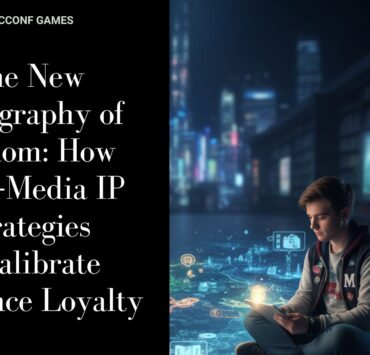Maintaining fairness and protecting game integrity require a clear understanding of glitches, mods, and cheats. Each category influences the gameplay experience in a distinct way.
Glitches exploit unintended code behavior, and mods modify or extend game systems, while cheats bypass limitations through unauthorized interference. For example, platforms such as Cosmo Cheats, which provide specialized PC enhancement tools and custom-built cheat software, demonstrate how external programs can modify gameplay behavior on a technical level.
In competitive games such as Counter-Strike or Apex Legends, similar cheat tools have enabled players to use aimbots and wallhacks that directly manipulate core mechanics. These interventions have forced major developers to implement constant patching cycles and advanced detection algorithms to maintain fair competition.
Therefore, this article examines how glitches, mods, and true cheats differ in their origins, purposes, and impacts on gameplay integrity, providing a clear framework for understanding how each influences the balance between creativity, performance, and fairness in gaming environments.
Table of Contents
ToggleGlitches
Glitches are technical anomalies within the game’s code or physics engine. These are unplanned and typically arise when complex systems interact in unforeseen ways. Players may trigger glitches accidentally or intentionally to gain an advantage or explore hidden areas.
Common types of glitches include:
- Collision glitches occur when characters or objects pass through solid surfaces.
- Duplication bugs allow the replication of valuable items.
- Timing exploits are frequently associated with animation or movement loops.
- AI manipulation occurs when logic gaps cause opponents to behave unpredictably.
Developers often view glitches as technical debts that reduce stability and trust. Competitive players experience frustration when victories are undermined by unintended mechanics. Speedrunners, however, may value glitches as tools for discovery and skillful execution.
The Impact of Glitches on Game Integrity
Glitches create tension between fairness and creativity. In single-player environments, exploiting a glitch may be harmless experimentation. In multiplayer contexts, it can undermine competitive balance and damage community perception. Persistent glitches may lead to loss of confidence in developers or servers, particularly when updates fail to resolve long-standing technical flaws.
While some communities celebrate the ingenuity of glitch discovery, others demand consistent enforcement of integrity. Developers must determine whether to patch or embrace these anomalies as part of the evolving player experience.
Mods
Mods, short for modifications, represent player-driven adjustments or expansions of a game’s assets, code, or mechanics. They are frequently developed with creative intent rather than to gain unfair advantage. Modding emerged as a form of participatory culture that bridges the gap between developers and players.
A mod can include:
- Visual retextures that alter aesthetics without changing gameplay.
- Gameplay adjustments that rebalance weapons, abilities, or difficulty levels.
- Entirely new storylines or maps, extending the original game’s lifespan.
- User interface improvements, enhancing accessibility and control.
Modding tools may be officially supported or exist through community engineering. Studios such as Bethesda and Valve have historically encouraged modding ecosystems that promote replayability and innovation.
The Ethical Dimension of Modding
Modding occupies a unique space between legitimate creativity and technical intrusion. When done responsibly, it fosters innovation and learning. Unauthorized modifications that inject monetization or data tracking, however, blur ethical boundaries.
Developers face challenges ensuring compatibility, preventing IP infringement, and managing updates that break older mods. Players who install community-made content accept potential instability, malware exposure, and incompatibility with online play. Despite these risks, modding remains an important educational entry point into game development and digital design.
Cheats

True cheats differ from glitches and mods in intent and methodology. Cheats directly interfere with core mechanics to bypass limitations, unlock restricted features, or alter resource availability. Unlike glitches, cheats are rarely accidental. Unlike mods, they are seldom sanctioned by developers.
Cheats can manifest in several forms:
- Console commands, accessible through developer tools or debug menus.
- Memory editors that modify in-game values, such as currency or health.
- External software like trainers, aimbots, or wallhacks.
- Network exploits that manipulate latency or packet data to distort reality.
These services cater to users who prioritize dominance, creating long-term challenges for developers and tournament organizers.
How Cheats Affect Player Trust and Fair Play
Cheating alters the social contract between players and developers. In competitive environments, the presence of cheats erodes confidence in ranking systems, disrupts economies, and drives legitimate users away. Even in single-player titles, the overuse of cheats can undermine progression systems and narrative design, reducing the satisfaction derived from genuine achievement.
Anti-cheat technologies operate continuously to detect injected codes, monitor unusual data patterns, and flag anomalies. Developers must balance aggressive enforcement with respect for user privacy. When enforcement becomes too intrusive, it may provoke community backlash.
Why the Distinction Matters for Developers and Players
Understanding this taxonomy influences how game ecosystems evolve. Developers who recognize legitimate creativity through modding can foster long-term engagement. Conversely, unchecked cheating may necessitate severe countermeasures that reduce openness and innovation.
Players also face decisions about personal integrity and long-term satisfaction. While a glitch or mod may appear harmless, their unchecked use in shared environments can compromise the collective experience.
The Continuous Battle Between Control and Creativity
Every innovation in design invites new methods of alteration. Glitches reveal the limitations of systems. Mods showcase community imagination. Cheats expose the vulnerabilities of digital control.
Developers invest substantial resources to maintain balance, yet total control remains elusive. The conversation surrounding modification and fairness will persist as games grow more complex and interconnected. The essential task for the industry is to preserve both technical integrity and creative freedom without erasing the identity of play itself.
Toward Responsible Innovation in Game Interaction
A sustainable future for digital entertainment depends on coexistence between regulation and experimentation. Developers must design flexible systems that allow expression while protecting core logic. Players must recognize the distinction between exploration and exploitation.
When creative freedom aligns with respect for system design, games evolve into richer, more resilient environments. Understanding the difference between glitches, mods, and true cheats provides the foundation for this balance, ensuring that innovation enhances the shared experience of play.






